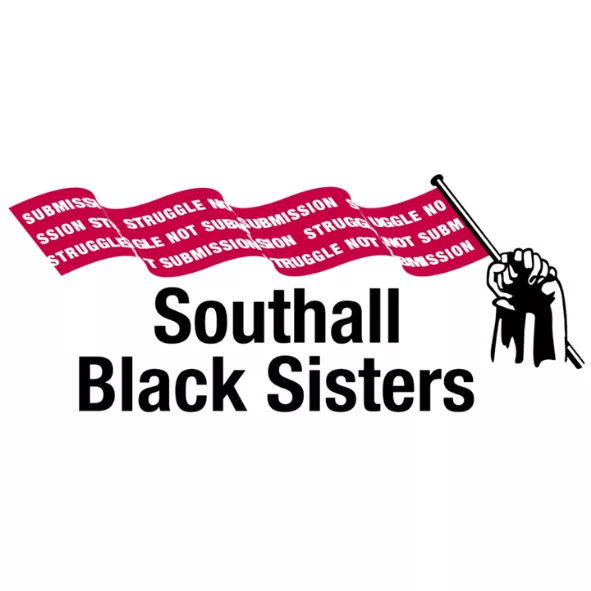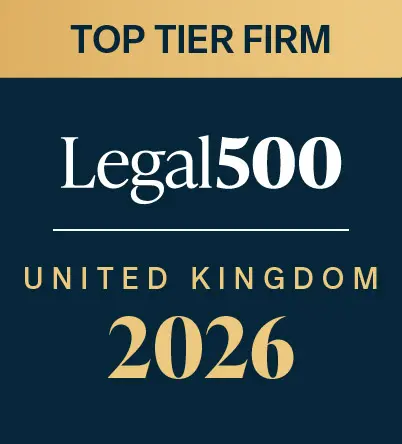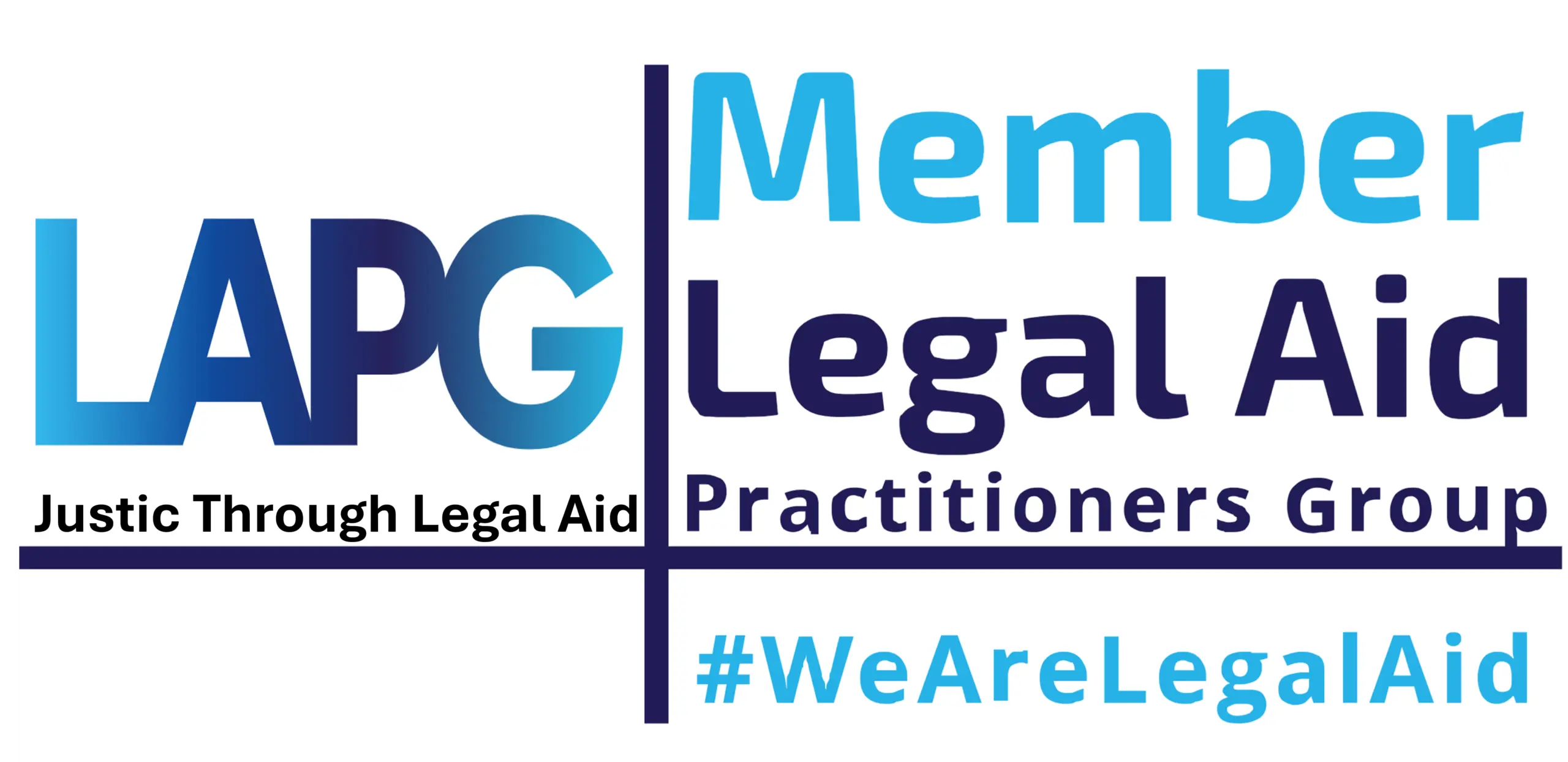Goodman Ray is a leading provider of legal advice and representation in family law and have a contract with the Legal Aid Agency (LAA) to provide Legal Aid. As experienced family lawyers in London and Brighton, we support clients with expert advice and representation covering the full spectrum of family law matters including matters concerning children. If you’re facing a family law legal issue, you may be entitled to Legal Aid.
In this article we explain some scenarios where Legal Aid may be available and how we can assess and where relevant make an application on your behalf.
What is Legal Aid?
Legal aid is funding from the government to help individuals access legal advice, representation, and other legal services. It is intended to help individuals if they cannot afford to pay for them themselves. This funding is only available if they meet the requirements and conditions of the Legal Aid Agency (LAA). The LAA is the government body responsible for granting funding for applications.
The cases for which legal aid is available have been set out in a law called the Legal Aid, Sentencing and Punishment of Offenders Act 2012 (LASPO).
For some cases, legal aid is effectively automatically granted to certain individuals (e.g., parents in care proceedings), meaning a full means or merits assessment is not required. In other cases the LAA needs to consider very detailed evidence before they make a decision.
We use different terms when we talk about legal aid applications. The most common of these are scope, gateway evidence, means, merits and eligibility.
An application for legal aid can only be made if the case itself is set out in LASPO and is therefore ‘in scope’.
If the case is in scope, then the LAA may consider your means and the merits of your case.
What is the Legal Aid Agency application process?
The Legal Aid Agency (LAA) application process involves your solicitor assessing whether your case is eligible based on scope, means, and merits. If you qualify, they will gather the necessary documents and submit the application to the LAA for approval. In urgent cases, emergency legal aid can be requested while the full application is processed.
For some cases, including disputes between parents concerning their children, you must first provide evidence that you are a victim of domestic abuse or a child is a victim of abuse and has to be safeguarded. This evidence is called gateway evidence. A GP letter saying they have met you and confirm that you are a victim of domestic abuse is an example of such evidence.
If the case is in scope, then the LAA may need to consider your means and the merits of your case.
What are Means and Merits when applying for Legal Aid?
- Means include your income and your savings, and are assessed to determine whether you can afford to pay for legal help yourself. The Legal Aid Agency will look at your earnings, any benefits you receive, and any capital you hold (such as property or savings) to decide whether you meet the financial criteria.
- Merits is an evaluation of whether or not your case is likely to succeed, and whether it is reasonable and proportionate to grant public funding. This involves an assessment of the legal strength of your case, the evidence available, and whether pursuing the matter using public funds is justified.
If you are a child who would like to be represented in a family law matter the merits test may be applied and your means will either not be tested or a simple assessment might be required.
Following our assessment, if we conclude that you are provisionally eligible for legal aid we will make a formal application to the LAA.
What if the Local Authority Is Concerned About My Child’s Safety and Starts Court Proceedings? Known as Care Proceedings.
Care proceedings are cases started by a local authority when there are serious concerns about a child’s safety or wellbeing. The local authority asks the Family Court to decide whether the child should be removed from their parents’ care or if other protective measures are needed. These proceedings are governed by the Children Act 1989.
If you are a parent, a child, or someone who has ‘parental responsibility’ and are involved in care proceedings, then the case is considered to be in scope and you are automatically eligible for legal aid.
Parental responsibility is a legal concept. You can have parental responsibility even when you are not the biological parent. As an example, if you have an order made by the court, such as a Child Arrangements Order where the child lives with you, or you have a Special Guardianship Order, where you are the child’s guardian, you will be automatically eligible for legal aid.
In this instance there is no assessment of your means nor of the merits of your case.
If you are not a party to care proceedings but are still involved in the case — for example, if you are being assessed as a potential carer for the child or children as an alternative to the parents — you are not automatically eligible for legal aid. You may still qualify, but a more detailed assessment of both your financial means and the merits of your case will be required before any funding can be granted.

What is Parental Responsibility?
Parental Responsibility is an umbrella term for the rights and responsibilities given to parents (and others) in respect of the children for whom they care for.
An article written by Edward Nicklin.
If You Want Your Child to Return to Your Care – Discharging a Public Law Order
If the court has made a final care order and your child has been placed with a foster carer, a special guardian, or in a residential placement, you can apply to have the order discharged if you want your child to return to your care.
This is known as a discharge of a care order. You will need to show that there has been a significant change in circumstances since the order was made and that it is now in your child’s best interests to return home.
These applications are in scope for legal aid, and many parents may qualify for Legal Aid. You will need to undergo both a means and merits assessment to determine whether you are provisionally eligible for legal aid.
If You Want to Contact a Child Who Is Looked After by the Local Authority – Contact With a Child in Care
If your child is being looked after by the local authority — for example, in foster care or a residential unit — the local authority has a duty to promote contact between you and your child, especially if you have parental responsibility.
If contact is not taking place, or if you feel the arrangements are not working, you can apply to the Family Court to request contact with your child.
These types of applications are in scope for legal aid, but funding is subject to a means and merits assessment to determine whether you are provisionally eligible.
If you do not have parental responsibility — for example, if you are a grandparent, sibling, or another relative — you may still apply for contact. These cases are also in scope for legal aid, but the Legal Aid Agency will carry out a full assessment of both your financial circumstances and the merits of your case before deciding on funding.
If You Want to Stop the Local Authority From Placing Your Child for Adoption
If you are a parent and want to stop the local authority from placing your child for adoption, for example, by opposing a placement order or an adoption order, you have the right to apply to the court.
These applications are in scope for legal aid, and you do not need a means test. However, your case must still pass a merits test, which assesses whether your application has a realistic prospect of success.
Legal aid can help you get advice, prepare your case, and be represented in court at what is often a very distressing and urgent time.
If You Are a Foster Carer and Want to Adopt the Child You Are Fostering but the Local Authority Does Not Support You
If you are a foster carer and want to adopt the child you are fostering but the local authority does not support your application, you can still apply to the court for an adoption order.
These cases are in scope for legal aid, but funding is not automatic. You will need to undergo a full means and merits assessment to determine whether you are eligible.
This means your financial situation will be reviewed in detail, and the Legal Aid Agency will also assess whether your application has a realistic chance of success and whether public funding is justified.

Find out more about the services that Goodman Ray offer and how we can help you with Fostering and kinship matters.
If the Local Authority Want to Restrict a Child’s Liberty
If you are a parent and your child is outside of your control and at risk of harming themselves or others, the local authority may intervene. They can apply to the court for an order that allows them to restrict your child’s liberty. This helps to keep your child and others safe. These are known as Deprivation of Liberty Safeguards (DoLS) orders.
If the local authority has applied for a DoLS order for your child and you disagree, you have the right to apply for legal aid to challenge or respond to the application.
These cases are in scope for legal aid, but you will need to undergo a full means and merits assessment to determine your legal aid eligibility.
However, if the DoLS application is being heard at the same time as care proceedings involving your child, you do not need to apply for separate legal aid funding for the DoLS matter.
Can I Get Legal Aid if I Want the Court’s Protection Against Violence Perpetrated Against Me or Any of My Children by My Current or Ex-partner or Other Member of My Family?
If you are a victim of domestic abuse or if your child is exposed to harm you can apply to court for protection by making applications for injunctions. The two injunctions you can apply for are non-molestation orders, or occupation orders.
These applications are in scope for legal aid.
We would need to complete a means and merits test.
Can I Get Legal Aid if There Is Disagreement Regarding the Children Between Me and the Other Parent?
If you are a parent in a dispute with the other parent about your child/children, you can apply to court to make a determination on the issue.
Some examples of issues that can be in dispute between the parents are listed below:
- Who the child should live with
- When and what kind of contact should take place between the child and one of the parents
- Whether the child can relocate with one of the parents whether in England or abroad
- Where the child should go to school
- What kind of medical treatment, if any, the child should have
- legal aid is means and merits tested. You will also need to provide evidence of domestic or child abuse to qualify for legal aid.
Applications to court to cover these scenarios can be in scope for legal aid if you are a victim of domestic abuse or if you are trying to protect the child from abuse and harm, as an example.
You will need to provide additional evidence of abuse which is very specific. It is referred to as ‘gateway evidence.’
If you do have this evidence then you will need to have a means and merits test.
If You Are a Child and You Want to Have Legal Advice and Representation
In all family cases the Judge will want to know what you think about the decisions that they will have to make about you. How your views will be heard by the Judge will depend on your age, understanding and maturity. Younger children’s views will be heard through a Children’s Guardian (CAFASS) who is a social work professional and will meet with you and report your wishes and feelings to the Judge. Older children may wish to have their views heard directly and not through another person.
As long as you are a child and the case is in scope, you may not need a means test. However you will need a merits assessment before funding is granted.
You can instruct your own family law solicitor provided the court considers you are able to do so and gives permission for this.
Examples of situations where a child can apply for legal aid and instruct a solicitor are:
- Your parents have separated and you want to have a say about who you live with and about how often you will spend time with each of your parents
- One of your parents wants to move to a different place either within England or abroad and you have views about where you want to live;
- You have a sibling who lives with someone else and you want to see them;
- You are in foster care and you want to return to live with your parents or a different person in your family;
- The local authority has asked the court to make a Forced Marriage Protection Order;
- You think you might be forced to marry someone against your wishes;
- You have concerns about your gender identity and you want help;
- There is an adoption application concerning you;
- Your parents can’t agree about your schooling or your medical care;
- You do not agree with the children’s guardian who has been allocated for your case.
Children Law Legal Aid Frequently Asked Questions
Children Law Legal Aid is funding provided by the government to help children and families access legal advice and representation in family law cases. It covers matters such as care proceedings, child protection, adoption, and contact with children in local authority care, depending on eligibility.
In many children law cases, particularly care proceedings, legal aid is granted automatically with no financial contribution required. In other cases, a financial assessment may be needed, and you might have to pay something towards your legal costs depending on your income and assets.
Yes. If the child is capable of understanding the legal process and the court agrees, they can instruct their own solicitor. Legal aid is available without a means test, but a merits assessment is required to determine whether funding should be granted.
If you are a parent or someone with parental responsibility involved in care proceedings, you will automatically qualify for legal aid. There is no need for a financial or merits test in these cases.
You can apply through a family law solicitor who holds a legal aid contract, such as Goodman Ray – a trusted family law solicitor in London and Brighton. We will assess your legal aid eligibility and, if you qualify, make the application to the Legal Aid Agency on your behalf.
Domestic Abuse Charities
You can find our more about domestic abuse by visiting our domestic abuse webpage as well as seeking advice and support from the following domestic abuse charities.
Solace Woman’s Aid: Violence against women and girls ends here
Solace offers free advice and support to women and children in London to build safe futures, free from male abuse and violence.

Southall Black Sisters: We Are Southall Black Sisters
We highlight and challenge all forms of violence against women and girls, empowering them to gain control over their lives & assert their human rights to justice, equality and freedom.

ManKind Initiative: Helping men escape domestic abuse
The Mankind Initiative is the principal, expert and specialist charity in the UK focusing on male victims of domestic abuse. The charity collaborates and works in close partnership with other organisations and practitioners to support these victims too.
Get in touch with our specialist Children Law Solicitors in London and Brighton
Do you require legal guidance or assistance with a matter whereby you wish to seek Children Law Legal Aid funding? If so, please do not hesitate to contact Goodman Ray Solicitors. Call us on 020 7608 1227, or email us at mail@goodmanray.com. Alternatively contact us via our website and someone will call you back.
Contact us today
If you have any questions or wish to get legal advice on any of the topics raised above please feel free to contact us.
Call us on 020 7608 1227







